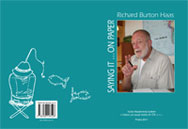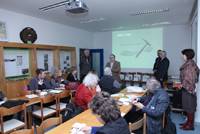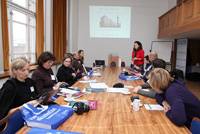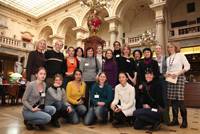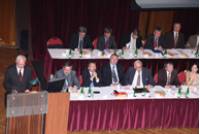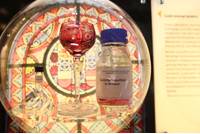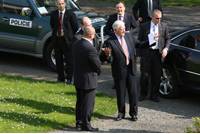Art historians tracked changes in, and compared nationalist rhetoric in modernism and avant-garde endeavors that was raised at an international symposium in Stockholm, The European Artistic Avant–Garde c. 1910–1930: Formations, Networks and Transnational Strategies. A workshop in November at the CAS Institute of Art History focused on one aspect of the avant-garde and modernism movements, namely, the clash with national, the transnational and the cosmopolitan forces. Beginning in the 19th century, countries of Central and Eastern Europe struggled for national independence that was achieved during and after World War I and had important cultural and artistic consequences. “The workshop served as a platform for rethinking the methodological tools used to understand and explain the complexity and the multiplicity of avant-garde forms in these regions of Europe, a subject that is still under-researched,” a workshop spokesperson said.
EUSJA General Assembly
 EUSJA General Assembly
EUSJA General Assembly
& EUSJA Study Trip
Prague, Czech Republic
March 14–17, 2013
Important links
Books
English books prepared for publication by Academy bulletin
Akademie věd České republiky / The Czech Academy of Sciences 2014 a 2015
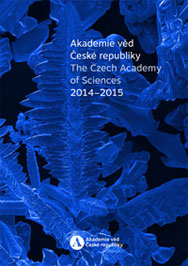
The Czech Academy of Sciences has issued a report accounting selected research results achieved by its scientific institutes in all research areas in 2014 and in early 2015.
Full version you can find here.
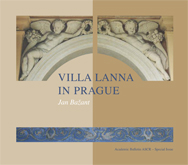
VILLA LANNA IN PRAGUE
The new english expanded edition
Archive
Stopy AB v jiných titulech
Photogallery
Archive
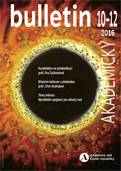

 Česky
Česky

